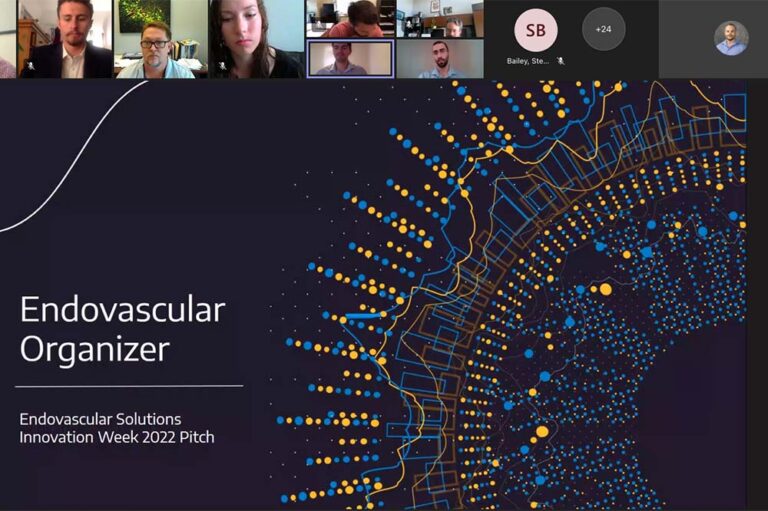
Innovation Week 2022 officially kicked off at the Medical University of South Carolina, headlined by Thursday’s Shark Tank event that will see researchers and faculty hoping to swim with the sharks for new funding. However, a select group of students have decided to try to reel in some of their own.
On Monday, April 25, nine students in four groups competed in their own version of MUSC’s Shark Tank, pitching to three faculty members and the winning group taking home a prize of $2,500. The competition, held virtually, was hosted by the Office of Innovation and the Student Innovation Ambassadors Program and is designed to drive and elevate talented student innovators to create solutions to health care-related challenges.
“Innovative ideas in the MUSC community undoubtedly help the school move in the right direction to achieve its goals,” said Alhaji Janneh, president of the Student Innovation Ambassadors and a Ph.D. student in the College of Graduate Studies. “That’s an objective of the MUSC Innovation Ambassador Program.”
While all of the teams scored closely with each other, the winning pitch happened to come at the end of the program from Benjamin Ellison and James McGinnis, who lured in the judges with their presentation – the Endovascular Organizer. The organizer is a tool designed to achieve safe endovascular care for patients regardless of clinical scenario or experience.
“The problem that we sought to solve was how might we improve the organization of wires, catheters and sheaths on the back table for endovascular procedures,” said McGinnis. “In any endovascular procedure, there are wires, catheters and sheaths all over the place. These tools need to be kept organized and identifiable for rapid handoffs to the surgical field. Additionally, outside of the body, any blood on them will begin to clot, requiring the devices to be wiped down by hand with the cleaning solution before being passed on to the field.”
The organizer creates a labeling system that makes every device easily identifiable and accessible to the vascular technician. Furthermore, the organizer accommodates the natural workflow of the operating room, particularly the technician and surgeon interactions.
The invention was fostered through MUSC’s Human Centered Design Program, which seeks to develop novel solutions for unmet needs in health care. It pairs MUSC students with a faculty mentor and Citadel business students. Benjamin and Riley partnered with Reece Blackwood, a senior at The Citadel, and Adam Tanious, M.D.
“Our solution helps achieve safe and efficient endovascular care by improving the organization and communication in the OR, reducing the amount of wasted tools and the number of incorrect handoffs,” said Ellison. “We’re currently beta-testing the product and filing for a provisional patent while hoping to start a small-scale trial to demonstrate the effectiveness of the device.”
“The Education Innovation Advocate program is a unique and exciting opportunity for our faculty to grow education innovation in the six colleges and the Academic Affairs Faculty,” said Gigi Smith, Ph.D. “The advocates will have meetings with key MUSC groups across campus to promote collaboration and further support for faculty education innovation.”